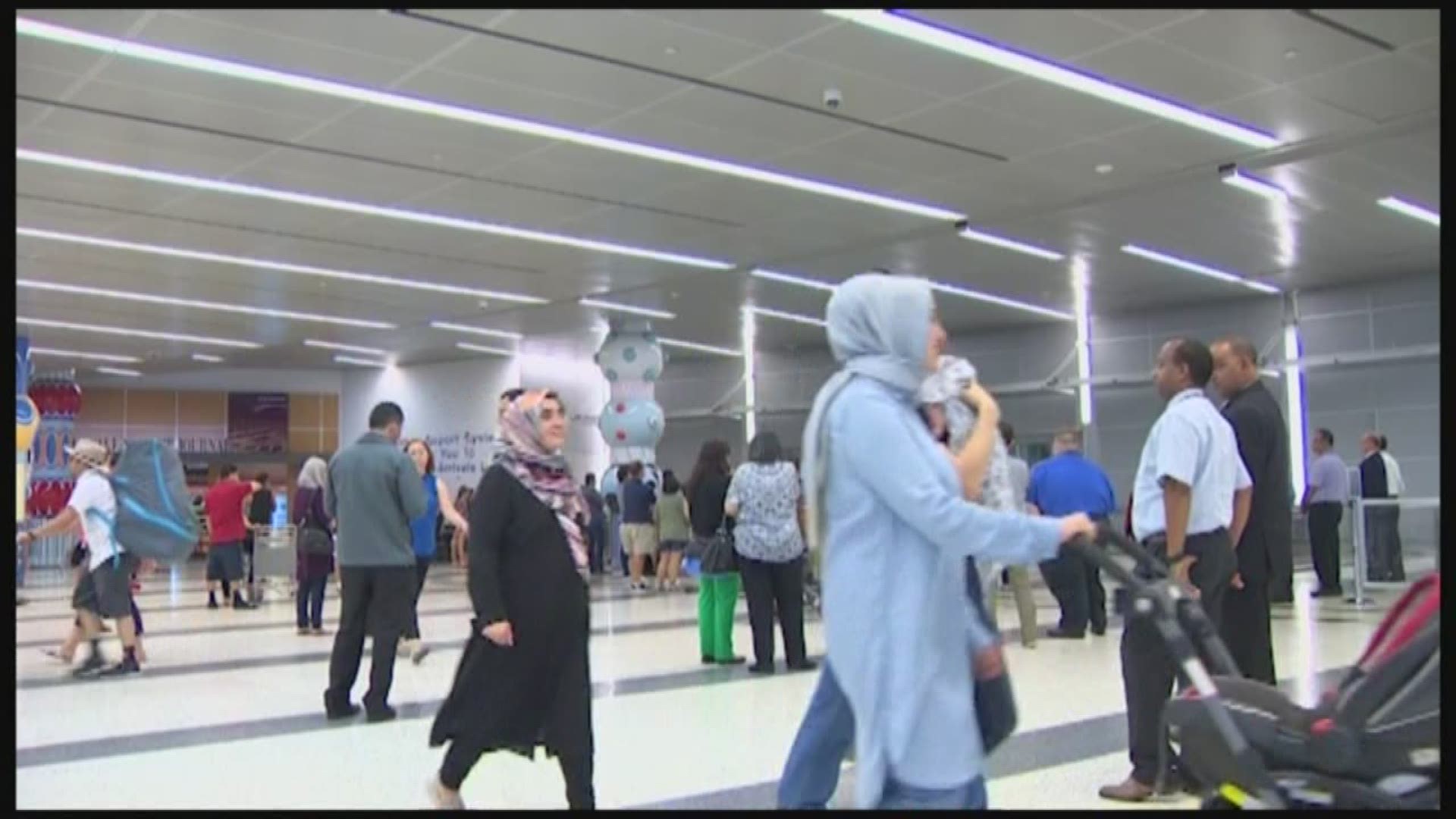President Trump's first travel ban targeting majority Muslim countries in January unleashed chaos around the world, as foreigners were stopped from boarding flights overseas and detained or deported after reaching U.S. airports.
That broad ban was quickly halted by federal courts. But at 7 p.m. CT Thursday, a scaled-down version went into effect with the blessing of the Supreme Court.
Immigration experts expect less disruption because far fewer travelers will be affected: those from Iran, Libya, Somalia, Sudan, Syria and Yemen without close ties to the United States.
Here's who will be allowed in and who will be barred:
Visitors admitted
- Legal permanent residents (green card holders) of the U.S.
- Foreign nationals already approved for a short-term visa, or have already begun their visa application process.
- People already approved for refugee status.
- Anyone who has a close relative living in the U.S. That includes a parent, spouse, child, adult son or daughter, son-in-law, daughter-in-law or sibling.
- People who have a standing job offer from a U.S. company.
- Students accepted by a U.S. university.
Visitors barred
- Anyone who lacks what the Supreme Court said is a "bona fide relationship" with a U.S. person or entity.
- People who have relatives in the U.S. who aren't "close" enough, such as grandparents, grandchildren, aunts, uncles, nieces, nephews, cousins, brothers-in-law and sisters-in-law, and fiancées.
- First-time tourists.
The State Department said Thursday it created its list of qualified relatives based on a definition of family found in the Immigration and Nationality Act. That is why the administration will treat a daughter-in-law as a relative but not a grandparent or fiancée.
A senior administration official said refugees who have been approved to enter the country by July 6 will be allowed to do so, but those planning to arrive after will be subject to the ban.
The official, who spoke on condition of anonymity to fully explain the guidance being provided, said foreigners who already have interviews scheduled at U.S. consulates for visas will be able to continue that process. But, they may end up being refused entry if they cannot show strong ties to the U.S.
As an international city, travelers from all over the world come and go from Houston’s airports every day.
At Bush IAH Thursday, the new restrictions got mixed reviews.
“And it’s not fair to be treated this way,” said Fatma Ali, a native Egyptian and Muslim. “It’s pure discrimination.”
“We elected Donald Trump to protect us, and if this is one of the steps he has to take, I’m all in agreement,” said Houstonian Susan Hilliard.
“People are just not sure what is expected of them to prove, because if you have to prove a bona-fide relationship, well, how do you prove that?" said Houston immigration attorney Mana Yegani. "Can you just provide a phone number and would that suffice? Or do they really want a birth certificate?"

